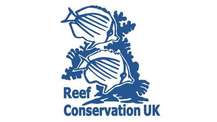Workshops
Reef Conservation UK 2020 will feature three workshops:
More details on these workshops is available below. Attendance at workshops will be limited, and these must be individually registered for. Please register using the workshop sign up link within the Hopin conference platform.
- MERMAID: An open source data platform for coral reef data collection and visualization
- Using storytelling to engage in science and conservation
- Building a Better Fieldwork Future: Preventing & Managing Sexual Harassment and Assault in the Field
More details on these workshops is available below. Attendance at workshops will be limited, and these must be individually registered for. Please register using the workshop sign up link within the Hopin conference platform.
MERMAID: An open source data platform for coral reef data collection and visualization
|
Reef scientists have historically used slates to record their findings underwater before manually transferring that data from paper into Excel, spending hours sorting and editing data to organize their findings, remove typos, and formatting for further analysis. This leads to vast amounts of data stored in offline databases, spreadsheets, and other disconnected systems that is difficult to access and at risk of loss, limiting collaboration and our understanding of coral reefs. This workshop introduces the Marine Ecological Research Management Aid (MERMAID; https://datamermaid.org) – a free online-offline web application for coral reef data collection and visualization developed in a partnership between the Wildlife Conservation Society, World Wildlife Fund, and Sparkgeo. MERMAID supports benthic cover, coral bleaching, and fish visual census data – managing this data throughout its lifecycle, from field collection to long term archiving, to ensure its usefulness and enable easy collaboration. With MERMAID, field scientists input their observations directly into the platform whether online or offline – avoiding data entry into spreadsheets. MERMAID automatically reviews the data and flags mistakes at entry, ensuring complete transect data, avoiding duplicates, and standardizing scientific names for benthic and fish species – enabling users to jump into analysis. MERMAID is based around collaboration, with multiple researchers able to input data for collation, and projects fully sharable. MERMAID exports data in machine readable formats, and a MERMAID-specific R analysis package is currently under development. In addition, a global MERMAID dashboard shows real-time key indicators of coral reef health for data users choose to make public. This interactive workshop will introduce how to use MERMAID, taking attendees step-by-step through data management workflows, available tools, data sharing options, and data export. Attendees will follow along using MERMAID on their computers during the workshop, and will finish fully equipped to start using MERMAID to support their research.
|
Using storytelling to engage in science and conservation
|
Having a compelling message behind your work is important. Why should people care about your project? What is the relevance of your work? Whether you are looking to improve the way you communicate, or engage people to take action and get involved in marine conservation or science, doing so in a storytelling style can be incredibly powerful. In this 90 minute workshop, we will explore the principles behind storytelling approaches to communication, the tools and media you can use, and case studies you can learn from. Through a mixture of presentation and breakout discussion, we hope to equip you with the knowledge to communicate powerfully to engage others in science and conservation.
|
Building a Better Fieldwork Future: Preventing & Managing Sexual Harassment and Assault in the Field
|
Fieldwork is an important and often necessary component of many scientific disciplines, yet research suggests that it presents a high-risk setting for incidents of sexual harassment and assault. This 90-minute workshop has been developed by a team of field researchers at UC Santa Cruz. It identifies the unique risks posed by fieldwork, and offers a suite of evidence-based tools for field researchers, instructors and students to prevent, intervene in, and respond to sexual harassment and assault. Through a series of practical intervention scenarios, this workshop guides participants in how to be an active and engaged bystander, how to report incidents, and how to plan field settings to minimize risk. Armed with these tools, participants can play a role in ensuring that field settings are safer, more equitable, and more welcoming for the next generation of field scientists.
|

